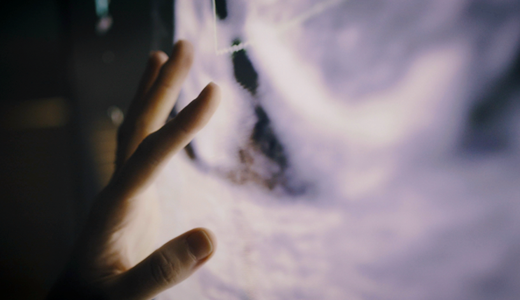How do Americans think about abortion, and who influences those narratives?
While we might not immediately think that movies about this controversial subject would be terribly common, Hollywood has produced quite a few stories sympathetic to and/or glorifying a woman’s choice to end her baby’s life over the last five decades. Grease. Fast Times at Ridgemont High. Dirty Dancing. The Cider House Rules. Citizen Ruth. If These Walls Could Talk.
Just this year, at least two movies have tackled this topic, albeit in very different ways: Never Rarely Sometimes Often and Unpregnant (which Plugged In writer Emily Clark will be talking about in more depth in a blog next week). Time noted the influence that films like these have earlier this year in its article “How a Crop of New Movies Is Changing the Narrative About Abortion.”
Actress and screenwriter Kelly O’Sullivan based her 2019 movie Saint Frances on her personal experience of having a chemical abortion—and how she’s intentionally seeking to normalize the possibility of others making the same decision:
“As I was going through that process, which was very simple and not very scary, I realized I had been miseducated about abortion through TV and film growing up and in my young adulthood. I wanted to write a story where it’s a non-traumatic depiction of abortion. It’s ordinary and light and sometimes funny, and very realistic in its portrayal.”
And sometimes even filmmakers who avoided characters having abortions have second thoughts about that stance. In 2007, screenwriter and director Diablo Cody gave us a rare thing indeed in Juno, a story about a teen girl who decides against abortion and who gives her baby up for adoption. She’s ultimately influenced not to get an abortion by some of the pro-life protesters she sees when she goes to a clinic for exactly that reason.
Since then, however, Cody has repeatedly recanted of her film’s premise. In 2017, she spoke at a Planned Parenthood event and said, “In a way I feel like I had a responsibility to maybe be more explicitly pro-choice, and I wasn’t. I think I took the right to choose for granted at the time.” And in May 2019, she said recent abortion restrictions have changed her stance on the story as well. “I don’t even know if I would have written a movie like Juno if I had known that the world was going to spiral into this hellish alternate reality that we now seem to be stuck in.”
The stories we encounter like this on the big screen (and many more similar depictions in various TV shows) shape our culture’s worldview about what’s right, good, normal and acceptable. Their influence powerfully molds millions’ perspective on this emotionally charged issue. That’s because the images we see influence the convictions we hold.
Which brings us to Focus on the Family’s new documentary, See Life 2020. This film tells stories—powerful stories—of women such as Martin Luther King Jr.’s niece Alveda King, who struggled with deep regret after her abortion in the early 1970s. We also hear from those who chose life instead of abortion, and the way that decision has profoundly shaped them. We hear from people such as NFL legend Mike Singletary, whose parents were advised to abort him because of concerns that he would not be healthy. We even hear from some whose abortions ended with them being born alive, as well as hearing from a man recounting his regret for helping his girlfriend get an abortion years before.
But as powerful as those stories are, See Life 2020 is built upon this premise: When we see the image of a baby in the womb, when we hear that little one’s heartbeat, the reality that this is a living, breathing person within a woman is simply undeniable and inescapable.
“This is the power of seeing life in the womb,” Focus on the Family President Jim Daly says during the film. “Show the world the baby, and the baby will change the world.” With that in mind, we’d invite you to witness the transforming images and stories in See Life 2020. It will be available online beginning Saturday, Sept. 26, at 8:00 p.m. EDT; and across all Focus on the Family social channels at that time: Facebook/YouTube/Instagram. We’d also invite you to join more than 150,000 others in signing the Pledge to #LoveEveryHeartbeat.







4 Responses
– I like the update to the blog! I wish all the comments had transferred over from the last blog, but it’s a minor thing. Great job on the update guys!
– Very true.
But there’s one glaring omission in the article: the link between Wonder Woman and Planned Parenthood.
According to Dr. Jill Lapore, professor of American History at Harvard, the real-life person on which the character of Wonder Woman was based was none other than Margaret Sanger, the founder of Planned Parenthood.
This may not directly make the Wonder Woman comics and movies pro-abortion propaganda, but it would be unlikely if the narrative did not have a pro-abortion (or pro-feminist) undercurrent.
– Whether or not an abortion is painful for a woman, it still results in a child’s death.
– The story’s writer said she was “horrified” when her Catholic high school wrote her a thank-you letter for writing a pro-life story; she was actually mortified by this!
How sad that she feels such shame over her character’s decision to simply have a baby and let it grow up loved.